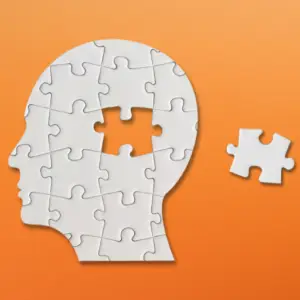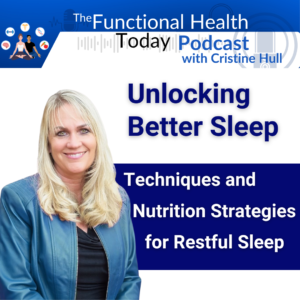Enhancing Brain Health:
Insights from Neuroscience for a Sharper Mind
Topics

Understanding Neuroscience and Brain Health for Optimal Well-Being

Neuroscience and brain health are crucial areas of study that explore the complexities of the brain and its impact on overall health. According to the World Health Organization (WHO), brain health is defined as “the state of brain functioning across cognitive, sensory, social-emotional, behavioral, and motor domains, allowing a person to realize their full potential over the life course, irrespective of the presence or absence of disorders.” The brain controls every aspect of our lives, from basic functions to complex cognitive processes. By understanding brain health, individuals can take proactive steps to enhance their cognitive abilities, emotional resilience, and overall quality of life.
Key Factors Influencing Brain Health

The brain exhibits unparalleled complexity, making it the most intricate organ in the human body. As noted in Mapping the Brain and Its Functions: Integrating Enabling Technologies into Neuroscience Research, understanding this complexity is crucial for advancing brain health and neuroscience research.
Several factors can influence brain health, including lifestyle choices, nutrition, and mental stimulation. A well-rounded approach that incorporates physical activity, a balanced diet, and cognitive exercises is essential for maintaining optimal brain function.Key factors to consider include:
- Nutrition: Foods rich in omega-3 fatty acids, antioxidants, and vitamins are vital for brain health.
- Physical Activity: Regular exercise improves blood flow to the brain and supports cognitive function.
- Mental Engagement: Activities that challenge the brain, such as puzzles and learning new skills, promote neuroplasticity.
- Sleep Quality: Adequate sleep is essential for memory consolidation and cognitive performance.
- Stress Management: Techniques like mindfulness and meditation can help reduce stress and enhance mental clarity.
How Physical Activity Affects Brain Function
 Physical activity significantly influences brain function, enhancing brain structure and fostering brain development. Regular exercise promotes the health of neurons and supports brain health across the lifespan, which can reduce the risk of developing Alzheimer’s disease and other mental disorders.
Physical activity significantly influences brain function, enhancing brain structure and fostering brain development. Regular exercise promotes the health of neurons and supports brain health across the lifespan, which can reduce the risk of developing Alzheimer’s disease and other mental disorders.
According to key research from the Mayo Clinic Health System and the Department of Health and Human Services, engaging in regular physical activity leads to improved health outcomes for both brain and body. This holistic approach contributes to overall health and well-being, especially in tackling dementia and promoting global collaboration for brain health.
The Role of Nutrition in Keeping Your Brain Healthy
 The role of nutrition is vital in maintaining a healthy brain. A diet rich in healthy fats and essential nutrients promotes optimal brain function and can help prevent cognitive decline and dementia. New research emphasizes the importance of these healthy behaviors in supporting the brain and nervous system.
The role of nutrition is vital in maintaining a healthy brain. A diet rich in healthy fats and essential nutrients promotes optimal brain function and can help prevent cognitive decline and dementia. New research emphasizes the importance of these healthy behaviors in supporting the brain and nervous system.
Nutrition refers to the brain’s ability to adapt and recover from brain injuries and damage to brain cells. Such dietary interventions are particularly significant for older adults, as they can keep your brain in shape and enhance mental well-being. This collaboration for brain health research aims to establish connections between health among various populations.
A well-nourished brain gives your brain the resilience to combat impaired brain function and maintain mental focus and slow deterioration. Emphasizing healthy habits is key to ensuring overall well-being and promoting social well-being, highlighting the intersection of behavioral neuroscience and nutrition.
The Role of Neuroscience in Brain Health
 Neuroscience provides insights into how the brain functions and how various factors impact its health. Understanding the brain’s mechanisms allows for better strategies in preventing cognitive decline and enhancing mental performance. Emerging research highlights the importance of early intervention and lifestyle modifications in promoting brain health.
Neuroscience provides insights into how the brain functions and how various factors impact its health. Understanding the brain’s mechanisms allows for better strategies in preventing cognitive decline and enhancing mental performance. Emerging research highlights the importance of early intervention and lifestyle modifications in promoting brain health.
By prioritizing brain health, individuals can improve their memory, focus, and emotional well-being. Incorporating healthy habits into daily life can lead to lasting benefits, helping to maintain cognitive function as one ages.

The Functional Fix Newsletter
3 actionable tips and a recipe every Thursday, guaranteed to fix at least one part of your life (or at least make you feel like you’re trying). Inbox relief is just a click away. 😊

The Functional Fix Newsletter
3 actionable tips and a recipe every Thursday, guaranteed to fix at least one part of your life (or at least make you feel like you’re trying). Inbox relief is just a click away. 😊
Top 10 Posts
Our Editorial Process
At Functional Health Today, we are committed to delivering content that reflects the highest level of expertise and integrity. Our articles are crafted by professionals in the field of longevity and functional health, ensuring that the information we provide is both relevant and insightful. Each piece of content is carefully reviewed to ensure accuracy, clarity, and unbiased perspectives, so our readers can trust the quality and reliability of the information they find here.
Looking to learn more?
Top Neuroscience &Brain Health Posts

Enhancing Brain Health: The Role of Physical Activity on Cognitive Function in Older Adults
Discover how physical activity enhances cognitive function in older adults, improving brain health and offering protective benefits for cognitive decline.

Navigating the Healthcare Maze: How to Get Better Care and Communicate Effectively with Doctors
Discover how effective patient communication can enhance your healthcare experience. Learn tips to foster trust and collaboration with your doctors for better care.

Binaural Beats: Unlocking Focus, Sleep, and Healing Benefits Today
Discover the power of binaural beats! Unlock focus, improve sleep, and promote healing with different frequencies. Experience the auditory illusion of two tones creating a third tone today!

Falling May Indicate Increased Risk of Dementia in Older Adults
A recent study reveals that falls in older adults may signal a heightened risk of dementia, with diagnoses increasing significantly within a year post-fall.

Understanding Neuroplasticity: How the Brain Adapts and Changes
Explore the fascinating world of neuroplasticity and brain plasticity, discovering how the brain adapts and changes throughout life to enhance learning and recovery.

L-Theanine: Dosage, Benefits, and Secrets to Better Sleep
Discover the health benefits of l-theanine, an amino acid in green tea. Learn about dosage, its role in enhancing sleep quality, and secrets to better sleep.








